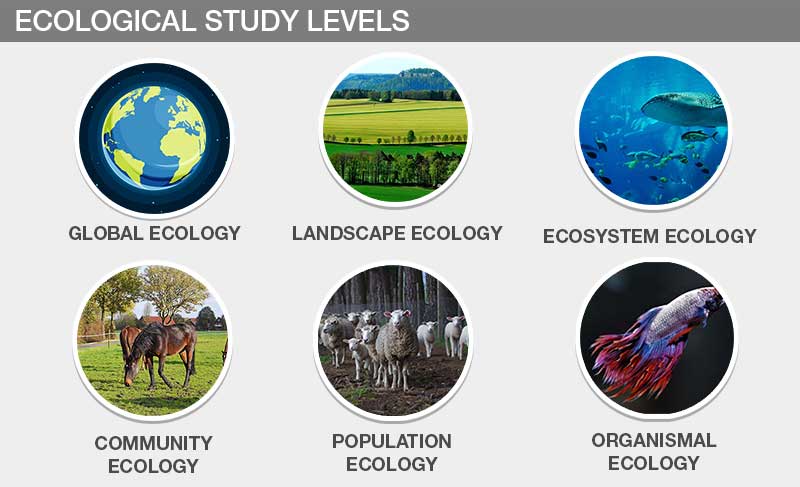
The Bay Area offers many opportunities for environmental consultants and nonprofit workers. Nomad's ecologists are experienced and include wildlife biologists, arborists, and botanists. Many Nomad employees have built their careers in the Bay Area.
Nomad's ecology experts have built their careers in San Francisco Bay Area.
Nomad Ecology is a San Francisco start-up that employs experienced ecology professionals who are well-versed in the Bay Area's regulatory and ecosystem environments. The team includes wildlife biologists as well botanists, GIS professionals, arborists and drone pilots.
Toxics Reduce Program Manager: This role will allow you to manage projects and programs that help improve public health, and the environment. Your responsibilities include developing partnerships and overseeing budgets. You'll also be responsible for hiring staff and advocating policies and programmes. You will be responsible for identifying new opportunities to reduce toxic chemicals and promote safer alternatives. You will also work to ensure that hazardous waste is properly disposed of.

Nomad's staff includes botanists, wildlife biologists, and arborists
The company is currently seeking a wildlife biologist/botanist of mid-to-senior rank to join its team. For those interested in these positions, please see the attached job announcements. This team is dedicated in helping to protect and restore natural resource.
The knowledge of trees and forest ecosystems is a key skill for licensed arborists. Their work ranges from identifying and monitoring tree health problems to treating and maintaining them. They can help with pruning, planting, transplanting, and other tree-related tasks. They might also be needed to protect trees or forests from lightning.
Certifications
There are a variety of different certifications for environmental consulting in the Bay Area. These certifications are useful for getting more clients, obtaining better-paying jobs, and gaining the best training. Some certifications have a more specific focus and are useful to different types. You may not need all the certifications but you can choose one that fits your needs.
You can get certifications and also an internship to gain valuable work experience. This will make your resume stand out. You should look for internships that give you practical experience in your chosen career field. For example, an internship in environmental consulting can involve data collection, report writing, and field work.

Work-life balance for environmental consultants
A career as an environmental consultant can provide a great deal of satisfaction, but it also comes with its share of drawbacks. The work can be repetitive and requires a lot of self-motivation. You will also need to work with difficult clients and keep track of your hours.
Many environmental consultants major in geology, chemical engineering, or environmental science. An education in public relations or business may also be helpful. They should have an excellent knowledge of regulations and policies affecting the environment. A strong communication skill is also required.
FAQ
Can anyone become a consultant
A consultant is someone who can help you reach your goal by providing advice on ways to make things better, more cost-effective, etc.
You may need a consultant to help you with problems, make decisions or negotiate with others.
Many consultants are hired for specific projects and tasks.
Consultants are often paid per hour or daily rather than per project.
How can I start an LLC consulting company?
First, determine what you are looking to do as service provider. Then you need to make sure you are qualified for those services. It might also help to find someone who already does what you want to offer and see how they operate.
Once you know your product/service, you should start looking for the right market. If they don't exist, you might have to make them.
Next, you will need to decide if you want to start your own business or hire others.
A license from the state could be required to start your own consulting business. However, this can take some time and require legal fees.
Do I need a degree to be a consultant?
Studying a subject deeply and then applying your knowledge is the best way for you to become an expert.
So if you want to learn how to become a great consultant, start studying now!
Employers may be reluctant to hire people with a degree, but not the relevant experience. But, if your qualifications are comparable to those who have been hired, you might still be eligible to apply.
Employers will always seek out candidates who have real-world experience.
What can I expect from my consultant?
You should hear back from your chosen consultant within a few days. They will request information about your company including its mission and goals, products, services, budget, and other pertinent details. After that, they will send you a proposal detailing the scope of work, expected time frame, fees and deliverables.
If everything looks good, then the two parties will negotiate a written contract. The type of relationship between the parties (e.g., employee-employer, independent contractor-employer) will affect the terms of any contract.
If all goes according to plan, the consultant will begin working immediately. You will have access both to your documents and internal resources and the consultant's skills and knowledge.
Don't assume that someone who is a consultant knows everything. It takes practice and hard work to become an expert in the field you are consulting. Don't expect your consultant know everything about your company.
What qualifications are necessary to become a consultant
It is not enough to have an MBA degree. You must also have experience as a consultant. You must have at least two years' experience working in consulting and/or training within a large company.
You should have had experience working with senior management to create strategy. This requires you to feel confident presenting ideas to clients, and getting buy-in.
You'll also need to pass a professional qualification exam such as the Chartered Management Institute's Certified Management Consultant (CMC) certification.
Statistics
- "From there, I told them my rates were going up 25%, this is the new hourly rate, and every single one of them said 'done, fine.' (nerdwallet.com)
- According to IBISWorld, revenues in the consulting industry will exceed $261 billion in 2020. (nerdwallet.com)
- Over 62% of consultants were dissatisfied with their former jobs before starting their consulting business. (consultingsuccess.com)
- On average, your program increases the sales team's performance by 33%. (consultingsuccess.com)
- According to statistics from the ONS, the UK has around 300,000 consultants, of which around 63,000 professionals work as management consultants. (consultancy.uk)
External Links
How To
How Do I Find A Good Consultant?
Understanding your needs is the first step to finding the right consultant. Do you want them to help you improve your website's performance? Do you need them to optimize your site so that it ranks higher in search engines' results? You might also want someone to help you determine if your hosting provider is in trouble. You should know the type of services that you require before you start looking at other companies. Many consultants claim to be able to provide these services. However, only a handful of them actually deliver on their promises. How do I choose one? These are some things you should consider when choosing a consultant.
-
Get recommendations. This is probably one of the best ways to find a consultant. It's not a good idea to hire someone you haven't heard of, as you will likely end up paying too much. However, you shouldn't work with someone with poor reputations. If you are lucky enough to be referred by people you trust, that's awesome! You can check online reviews even if they don't refer you. You can find testimonials and case studies from clients who have used your service.
-
Ask around. Many people are unaware that hiring a consultant could make a difference. They think that since they're currently doing fine, they don't need to make changes. This is often not true. Even if your results are great, there's a good chance that you haven’t kept up with the latest trends and technologies. Relying on outdated methods will prevent you from maximizing your potential for growth. Ask around to find a qualified consultant.
-
Make sure to verify their qualifications. You don't need to worry about whether they are building a website or an eCommerce store worth millions. You need to ensure that the person you hire is qualified to do the job and has sufficient knowledge in the subject.
-
Find out the type of projects they specialize. It is a common misconception that everyone can manage everything. Some areas require specialized training and education. You won't hire a Drupal developer if you need to build a WordPress template. It is the same for programming languages, graphic design, and so on. Be sure to ask what kinds of projects they typically work on.
-
Find out what their charges are. We said that you don't need to pay too much for consulting services. You also don’t want to spend too little. There are many types of consultants. Some charge hourly rates while others bill per project. You can save money by knowing upfront exactly what you will be paying.
-
Understand what they offer. Are they providing free consultations? Will they give you advice on how to set up your own system? Do they promise that your site will rank higher once you have worked with them? If you don't like what you hear during your consultation, you should feel confident knowing you can cancel without penalty.
-
You can also find out if they offer discounts on multiple months or over years. Many consultants offer discounted pricing for extended periods of time. Even though you do not necessarily have to commit to a whole year of service, you might still be able to benefit from any specials they offer.